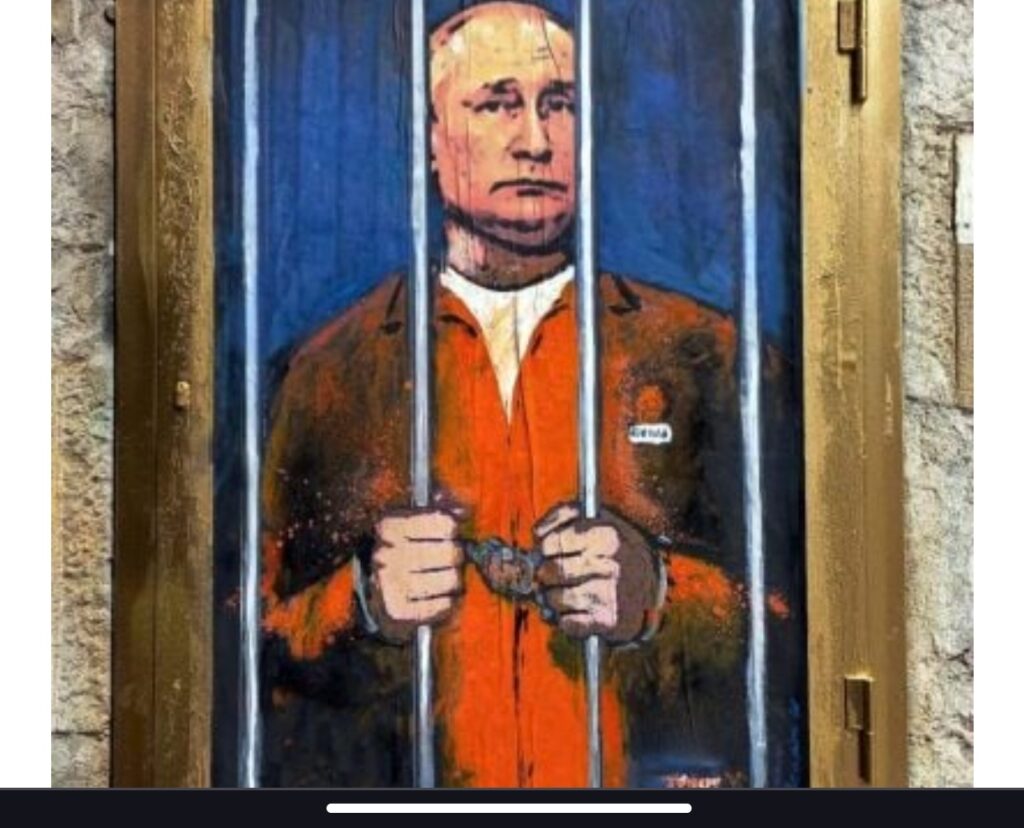
Introduction
The international community has been closely monitoring the actions of Russian President Vladimir Putin since the onset of Russia’s invasion of Ukraine. The International Criminal Court (ICC) has issued an arrest warrant for Putin, accusing him of committing crimes against humanity. As a signatory to the Rome Statute, Mongolia is now faced with a significant question: should it arrest Putin if he sets foot on Mongolian soil? This article outlines the legal obligations that compel Mongolia to act, details the accusations against Putin, and discusses the potential consequences of failing to fulfill these international responsibilities.
Legal Obligations to Arrest Putin
Commitments Under International Treaties
Mongolia is a party to the Rome Statute, the founding treaty of the ICC. By ratifying this treaty, Mongolia has committed to cooperating fully with the court, including the arrest and transfer of individuals accused of serious international crimes, such as war crimes and crimes against humanity. Article 86 of the Rome Statute explicitly requires state parties to cooperate with the ICC in its investigations and prosecutions, which includes the obligation to arrest and surrender suspects.
Therefore, if Vladimir Putin were to enter Mongolian territory, the Mongolian authorities are legally bound to detain him and facilitate his transfer to the ICC. Failing to do so would constitute a violation of international law and undermine Mongolia’s standing as a responsible member of the international community.
Domestic Legislation in Mongolia
In addition to its international obligations, Mongolia has domestic laws that govern the implementation of international treaties. These laws provide mechanisms for the arrest of individuals accused of international crimes based on warrants issued by the ICC. As such, Mongolian law also obliges the authorities to arrest Putin if he is found within the country’s borders.
Consequences of Non-Compliance
If Mongolia refuses to arrest Vladimir Putin, it could face serious international and domestic repercussions.
International Consequences
- Diplomatic Isolation: Mongolia could face condemnation from the international community for failing to meet its obligations under the Rome Statute. This could strain its relations with other countries and international organizations.
- Sanctions: Non-compliance with ICC obligations may lead to sanctions from other states or international bodies, which could negatively impact Mongolia’s economy and foreign relations.
- Reputational Damage: Failing to adhere to international commitments would damage Mongolia’s reputation as a trustworthy partner in global affairs, potentially diminishing its influence and standing in international forums.
Domestic Consequences
- Legal Accountability: Mongolian officials may face legal consequences under domestic law for failing to fulfill international obligations, which could result in sanctions against those responsible for the decision not to arrest Putin.
- Public Dissatisfaction: Within Mongolia, there could be significant public backlash if the government is perceived as shirking its responsibilities, leading to potential political instability.
The Charges Against Vladimir Putin
War Crimes
The ICC has accused Vladimir Putin of multiple war crimes related to Russia’s invasion of Ukraine. These crimes include:
- Deliberate Attacks on Civilians: Russian forces, under Putin’s command, have conducted attacks on civilian infrastructure, including homes, schools, hospitals, and other non-military targets.
- Use of Prohibited Weapons: Russia has been accused of using weapons banned under international law, such as cluster munitions and thermobaric weapons, which cause widespread destruction and civilian casualties.
- Mass Killings and Executions: In the occupied regions of Ukraine, Russian forces have reportedly carried out mass executions of civilians and destroyed entire families.
Crimes Against Humanity
In addition to war crimes, Vladimir Putin faces charges of crimes against humanity, including:
- Deportation and Forced Displacement: Large numbers of Ukrainian civilians have been forcibly removed from their homes and relocated to Russia or other regions, actions that constitute ethnic cleansing.
- Torture and Inhumane Treatment: Russian forces have engaged in widespread torture and abuse of prisoners and civilians suspected of supporting Ukrainian authorities, including beatings, electric shocks, sexual violence, and other forms of inhumane treatment.
Domestic Repression in Russia
Beyond his actions in Ukraine, Vladimir Putin is also responsible for extensive repression within Russia:
- Suppression of Free Speech: Putin has systematically dismantled independent media in Russia, silencing journalists through harassment, imprisonment, and, in some cases, murder.
- Persecution of Political Opposition: Prominent opposition figures, including Alexei Navalny, have been subjected to poisoning, imprisonment, and other forms of state-sponsored repression under Putin’s regime.
- Crackdown on Peaceful Protests: The Russian government regularly suppresses peaceful protests with excessive force, leading to mass arrests and violence against demonstrators.
Conclusion
As a signatory to the Rome Statute, Mongolia has clear international and domestic obligations to arrest and surrender Vladimir Putin to the International Criminal Court if he enters its territory. Failure to comply with these obligations could lead to severe international and domestic consequences, including diplomatic isolation, economic sanctions, and legal accountability for Mongolian officials. The charges against Putin are extensive and severe, encompassing war crimes, crimes against humanity, and widespread domestic repression. Mongolia must uphold its international commitments and contribute to global justice by ensuring that those responsible for such crimes are held accountable.
Obzoro /// Denis Ruzavin
